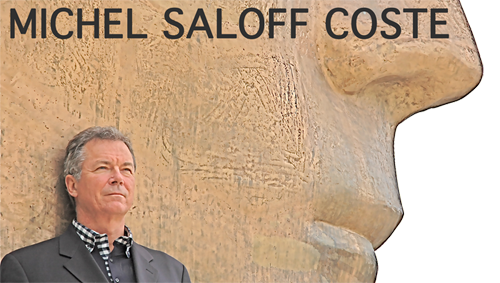
This handout picture released Dec. 22 by the Vatican press office shows Pope Francis delivering a speech to the prelates during the audience of the Curia, the administrative apparatus of the Holy See, for Christmas greetings in the Sala Clementina of the Apostolic Palace at the Vatican. (Osservatore Romano via AFP)
Every year around this time, Pope Francis and the senior governing cardinals, bishops and priests of the Vatican — referred to as the Curia — meet for an exchange of Christmas greetings. This year, Pope Francis brought a little something extra for the Curia: a 15-point “catalog” of spiritual diseases he’s seen among leadership there, and how a little bit of Christmas spirit might help to make things better.
It’s not a perfect analogy, but Francis’s Christmas greeting Monday was roughly the equivalent of a CEO sending his or her top executives off to Christmas vacation with a cleverly-worded list of everything they do wrong at the company. Merry Christmas?
The list of diseases included “spiritual Alzheimer’s,” “spiritual petrification,” a feeling of being “immortal,” and “funereal face,” a concept Francis referred to this month, urging followers to prepare for Christmas with “joy,” instead of dourness or anxiety. The pope also blasted gossiping among officials as a form of “satanic assassination.” He said: “Sometimes, [officials of the Curia] feel themselves ‘lords of the manor’ – superior to everyone and everything.”
Francis hoped that the Christmas season would help the governing body to heal some of what ails it.
The Vatican released an English version of the list. Some of the highlights — or lowlights — depending on whether you are a member of the Curia or not:
- On feeling “immortal”: “A curia that does not practice self-criticism, does not keep up to date, does not try to better itself, is an infirm Body.’ “
- On what he means by “spiritual Alzheimer’s”: “A progressive decline of spiritual faculties’ which ’causes severe disadvantages to people,’ making them live in a ‘state of absolute dependence on their, often imagined, views.’ We can see this in those who have ‘lost their memory’ of their encounter with the Lord, in those who depend on their ‘passions, whims and obsessions.’ “
- On the disease of “existential schizophrenia”: This refers to “a double life, a result of the hypocrisy typical of mediocre people and of advancing spiritual emptiness, which degrees or academic titles cannot fill.’ ” Ouch.
Some of his harshest words were reserved to sins related to gossiping, which, as shown above, the pope likened to the actions of Satan. Gossip, he said, will grip a person and transform him into one of the “sowers of discord.” Which is a pretty direct reference to what Satan does. Francis called gossips “cold-blooded murderers” of reputations. “It is the disease of cowards, who do not have the courage to speak upfront and so talk behind one’s back. … Watch out against the terrorism of gossip!” he said.
As CNN notes, the pope may have made an oblique reference to the sex abuse scandal while discussing a “disease of a closeness,” which he said was a “cancer which threatens the harmony of the body and causes a lot of evil and scandal, especially towards our small brothers and sisters.”
“These and other maladies and temptations,” said Pope Francis, according to Vatican Radio, “are a danger for every Christian and for any administrative organization, community, congregation, parish, ecclesial movement, etc., and can strike at both the individual and the corporate level.”
The Vatican’s English-speaking spokesman Fr. Thomas Rosica addressed the Pope’s remarks in a Monday statement:
“In response to the many messages and phone calls this morning requesting a comment or statement on the Pope’s Christmas address to the Roman Curia, I simply state that the Pope’s words speak for themselves and need no interpretation. Now and then in our religious history, prophets arise to call us back to our origins, our roots and also our intended mission. That is what Pope Francis is doing. His words apply not only to the Roman Curia at the Vatican but to the entire Church throughout the world. His words are also valid for many institutions in the world today that lose sight of their original mission.”
This is not the first time Pope Francis has openly criticized the Curia, nor will it be the last. Before becoming pope, Francis was an outsider to the bureaucratic body of the Curia, which has a reputation for ineffectiveness and corruption. As pope, Francis has pledged to reform it.
The pope also met with many of the Vatican’s employees (and their kids) Monday. Judging by the photographs below, that meeting was a little bit friendlier:

Pope Francis blesses a child as he arrives to lead a special audience for Vatican employees and their families at the Paul VI hall at the Vatican on Dec. 22. (Alessandro Bianchi/Reuters)

Pope Francis is pictured on mobile phones as he arrives to lead a special audience for Vatican employees and their families at the Paul VI hall at the Vatican on Dec. 22. (Alessandro Bianchi/Reuters)

Pope Francis receives a picture from a child during the audience for Vatican employees in the Paul VI hall at the Vatican. (Osservatore Romano via AFP)
Pope Francis, in preparation of Christmas, blessed children's baby Jesus figurines during his weekly Angelus prayer Sunday. (Reuters)
[This post has been updated]

